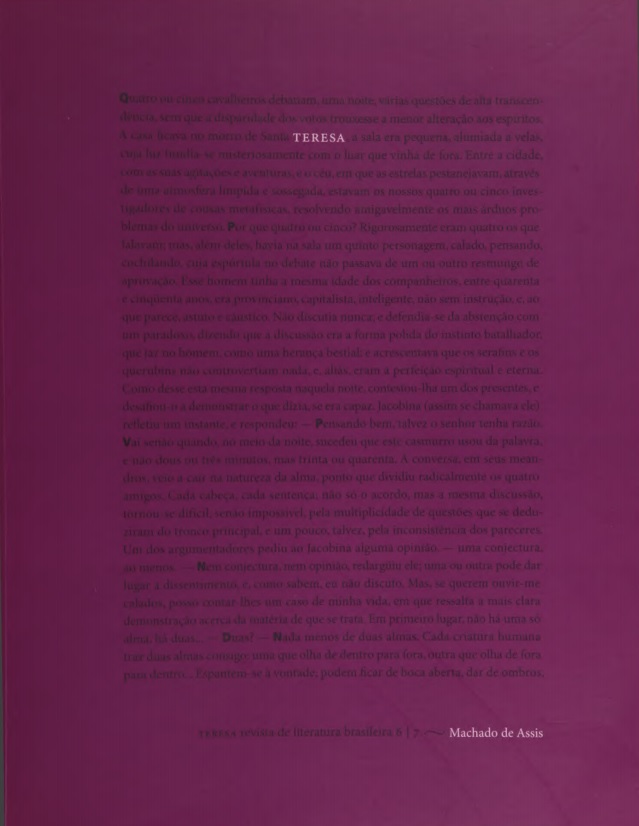Brás Cubas em três versões
Palabras clave:
Machado de Assis, Memórias póstumas de Brás Cubas, form alizing reading, existential reading, sociological reading, humourResumen
Critics have studied the bizarre narrator of Memórias póstumas de Brás Cubas at three levels: (1) according to a form alizing reading, the dead author develops Sternes “freeform ”; (2) a cognitive and existential reading is centred on the figure of the melancholy humourist; (3) a sociological reading is centred on the social type of Brás in the ideological context of Brazil as part of the Portuguese Empire. Each of these three levels deals with certain characteristics of the narrator, but no interpretation is in itself sufficient to fu lly comprehend Machado’s vision. Three ideological elements of the Brazilian context can be found. The hegemony of excluding liberalism dominates the entire biography of Brás, which begins in the colonial period. The new democratizing liberalism, form ed from i860 to 1870, nourishes Machado’s local satire. And finally, sceptical moralism provides the general perspective of the novel and reflects the progressive certainties which are inherent to new liberalismDescargas
Los datos de descarga aún no están disponibles.
Descargas
Publicado
2005-12-08
Número
Sección
Ensaios
Licencia
O envio de artigos por seus autores pressupõe a cessão dos direitos de publicação à revista Teresa.
Cómo citar
Bosi, A. (2005). Brás Cubas em três versões. Teresa, 6-7, 279-317. https://www.journals.usp.br/teresa/article/view/116627



